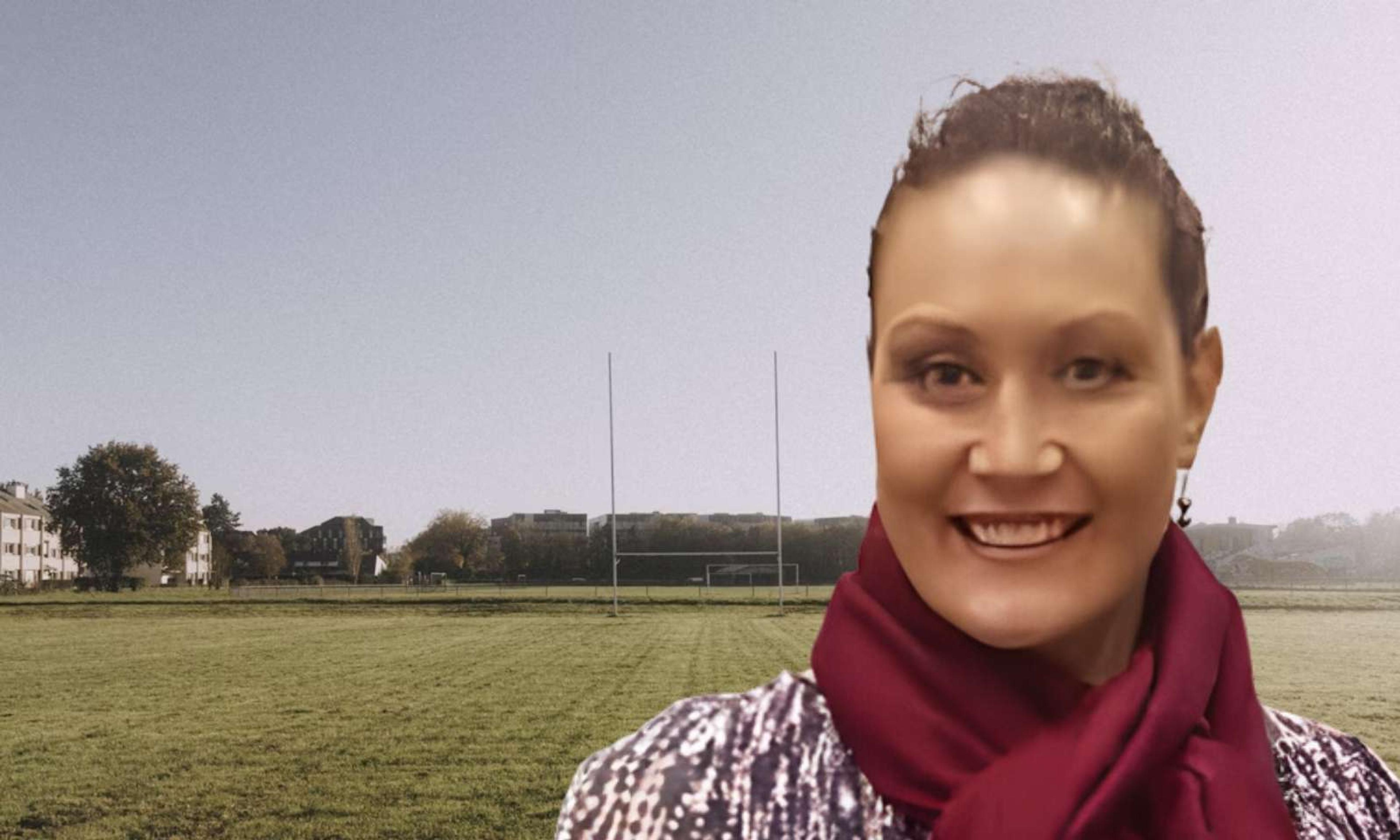

Monalisa Codling.
Photo/New Zealand Barbarian Rugby Club Incorporated/Unsplash
‘A place for everyone’: Monalisa Codling advocates for more women to enter rugby
The former Black Fern standout emphasises the rapid growth of the sport and urges more women to engage in leadership, coaching, and governance roles.


Pacific leaders read the signals from Waitangi after tense Māori and Crown discussions

Pacific finance expert outlines how stronger money skills can ease unemployment pain

Cook Islands and US forge strategic alliance on critical minerals


Pacific leaders read the signals from Waitangi after tense Māori and Crown discussions

Pacific finance expert outlines how stronger money skills can ease unemployment pain

Cook Islands and US forge strategic alliance on critical minerals
A Black Ferns legend urges more women to step into leadership roles within rugby, as she continues to shape the future of the game through governance.
Sāmoan rugby veteran Monalisa Codling played 30 tests for the New Zealand women's national rugby union team between 1998 and 2010, winning four World Cups and helped the team maintain an impressive 24-match unbeaten streak from 2002 to 2009.
The West Auckland-born 48-year-old also became the first woman to serve on the New Zealand Barbarians Rugby Club committee in 2017.
Speaking with Tuilagi William Leolahi on Pacific Huddle, Codling says female voices bring lived experiences to decision-making spaces, protect the game’s history, and help create opportunities for future players.
She explains that male-dominated spaces often lack an understanding of women’s contributions, making female representation essential for the sport’s future.
“What the males don’t know, they don’t know, and it [can even be] about history. Not a lot of the women’s history was in print, it wasn’t tangible. Having female voices that have been there, done that, is very important,” Codling says.
Codling continues to shape rugby as a committee member with the Barbarians, helping develop opportunities for young women.
“We've had three years running now, under-18s, that usually have an annual game against a Pasifika team, and a New Zealand Māori under-18s team. We’ll enter a team into the Global Youth Sevensthat's coming up in December.”
Codlimg, who captained Manu Sina at the Hong Kong Sevens in 2001 and played a key role in the 2006 World Cup final, describes the match as her best experience on the field. Codling says her leadership journey stems from cultural values and her early responsibilities as the eldest child of a Sāmoan mother and English father.
“With my grandfather being in matai [Sāmoan chief], I sort of grew up with that. That was part of the Manu Sina journey for me. But I got put into captaincy and I was the only person on the team that couldn't fa’asāmoa [speak Sāmoan].”
“I'm honest enough to say I still don't fully speak it, but I still understand.I still know the values and the lessons learned from sitting and going to church every second Sunday with my grandfather back in the day when he was alive,” Codling says.
World Rugby reports almost two million female participants worldwide, with 319,966 active registered players and more than 1.3 million engaged through development programmes last year. In New Zealand, women now make up one in seven registered rugby players, with participation steadily increasing across schools and clubs.
In 2018, NZ Rugby established a Black Ferns Legacy Fund and ambassador roles, aiming to ensure players are visible and active beyond their playing careers. These initiatives also put women at the forefront of the sport’s growth.
Under this professional performance programme, players receive guaranteed retainers, assembly fees, medical insurance, maternity support and personal development plans. These measures address financial and structural barriers that have historically limited women’s ability to stay in the game.
World Rugby reports that global participation in the women’s game grew by seven per cent in 2023, coinciding with increased international fixtures and the launch of competitions like WXV, the global women's 15s competition.
Codling says the game has changed dramatically since her debut, particularly with more visibility and professional contracts for players. The former lock says these changes make it the best time for women to get involved in rugby in various capacities.
”In terms of its future, you've got the likes of the Sevens, they're fully professional, they go out there and do amazing on the world circuit. Now that everyone's talking about the women's game, there's so many opportunities coming through for any young aspiring athlete to get involved.”

World Rugby reports that global participation in the women’s game grew by seven per cent in 2023. Photo/Unsplash
“Not just as a player, but also in terms of admin, coaching and that sort of governance space. So mums and aunties that we know that cheer really loud, there's a place for everyone in the women's game,” Codling says.
“What I like about it is that there's also money. If you can get those jobs, there's money to remunerate yourself rather than doing it for free.”
Her advice for the next generation of players is that although the pathway is not easy, “you can do it”. She shares gratitude for the memories from her journey as a mother, wife, and leader.
“I hope that the women who come through have those same amazing memories. It’s the women's team, still playing in our legacy. But we're all just the cogs and the machine that is the Black Ferns. I hope that they carry on our legacy, shine and be the amazing women that they are.”